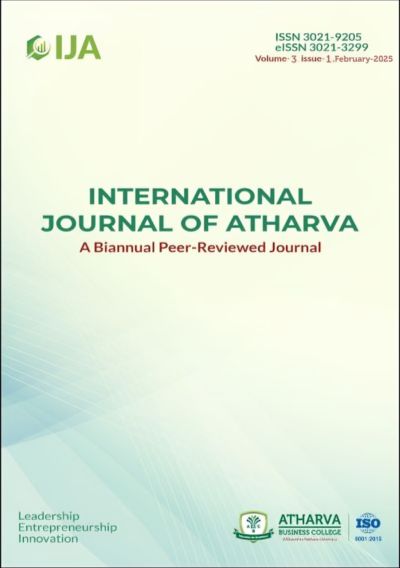Power Dynamics and Societal Relegation in Handke’s A Sorrow Beyond Dreams
DOI:
https://doi.org/10.3126/ija.v3i1.76723Keywords:
Female identity, power dynamics, social relegation, suicideAbstract
Background: Peter Handke’s A Sorrow Beyond Dreams (1972) is an evocative exploration of power dynamics and Maria’s relegation in patriarchal Austrian society. The narrative recounts the suicide of the narrator’s mother and is an account of his mother’s memoir. Handke’s novella blends autobiography with metafiction, which can create a narrative that is both intimate and reflective of the sociocultural notion of creating an atmosphere for social relegation due to the male-centered power structure.
Method: This study is a qualitative analysis with logical textual analysis of the novel using a feminist approach. It examines existing power structures and societal oppression of females through feminist critical discourse analysis. Simone de Beauvoir (1949) and Julia Kristeva’s (1942) gender theories related to social power have been applied to validate the idea that the power dynamics of society compel females to be mentally depressed.
Results: By stating Handke’s work within a broader feminist discourse, the paper explores the themes of gender-based oppression of the narrator’s mother Maria, her emotional isolation, and the erasure of female autonomy. The mother struggles for identity, but it ultimately leads to her demise due to her inability to dismantle the boundary of power dynamics. The structure of narration, which moves between personal reflection and detached points, underscores the tension between women’s suffering and societal constraints.
Conclusion: The paper proclaims that A Sorrow Beyond Dream is the epitome of a typical relegate woman, rendering Maria’s struggles as a representative representation. Such struggle is invisible until she comes up with public resistance. Female identity is shaped by male-controlled social expectations. Those who fail either to resist or to endure are bound to commit suicide.
Novelty: Power distresses the autonomy of the people in the society as it does to the narrator’s mother in the novel. The mental breakdown of the female in the novel is the result of family and social relegation.
Downloads
Downloads
Published
How to Cite
Issue
Section
License
Copyright (c) 2025 Bishnu Prasad Pokharel, Sultana Banu

This work is licensed under a Creative Commons Attribution-NonCommercial 4.0 International License.





